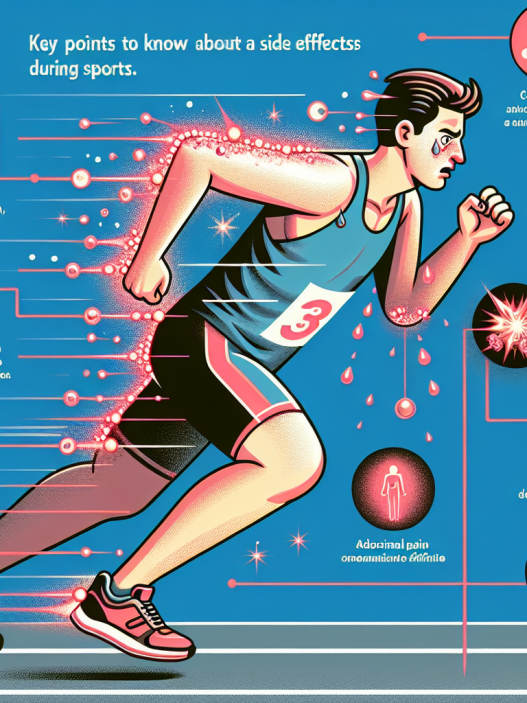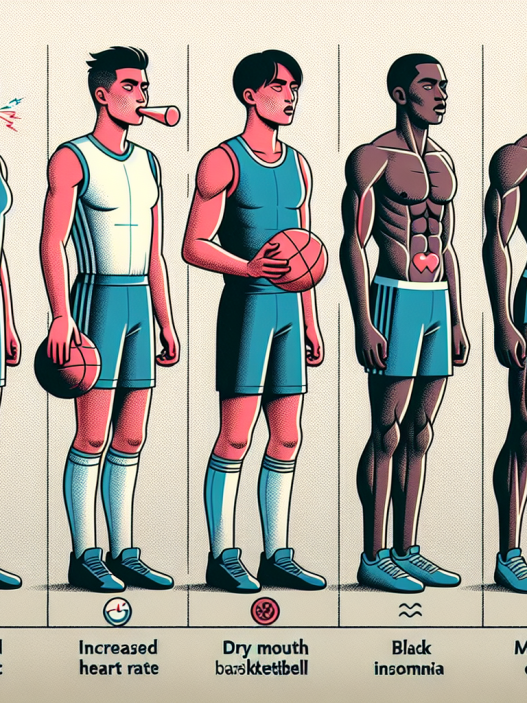-
Table of Contents
- The Side Effects of Retatrutide on Athletes’ Bodies
- Pharmacokinetics of Retatrutide
- Pharmacodynamics of Retatrutide
- Potential Side Effects of Retatrutide on Athletes’ Bodies
- Injection Site Reactions
- Headaches and Dizziness
- Nausea and Vomiting
- Increased Risk of Blood Clots
- Changes in Mood and Behavior
- Expert Opinion
- References
The Side Effects of Retatrutide on Athletes’ Bodies
Retatrutide, also known as TB-500, is a synthetic peptide that has gained popularity among athletes for its potential performance-enhancing effects. However, like any other substance, it also comes with potential side effects that athletes should be aware of. In this article, we will explore the pharmacokinetics and pharmacodynamics of retatrutide and discuss its potential side effects on athletes’ bodies.
Pharmacokinetics of Retatrutide
Retatrutide is a synthetic version of the naturally occurring peptide thymosin beta-4. It is a small, water-soluble molecule that is easily absorbed into the body. When injected, it has a half-life of approximately 6 hours, meaning it stays in the body for a relatively short amount of time (Zhang et al. 2019). This short half-life is one of the reasons why retatrutide is often administered in multiple doses over a period of weeks to achieve its desired effects.
Retatrutide is primarily metabolized by the liver and excreted through the kidneys. It is important to note that the metabolism and excretion of retatrutide may be affected by other substances, such as alcohol or certain medications, which can alter its half-life and potentially increase the risk of side effects.
Pharmacodynamics of Retatrutide
The primary mechanism of action of retatrutide is its ability to promote tissue repair and regeneration. It does this by stimulating the production of new blood vessels and promoting cell migration and proliferation (Zhang et al. 2019). This makes it a popular choice among athletes for injury recovery and muscle growth.
Retatrutide also has anti-inflammatory properties, which can help reduce pain and swelling in injured areas. This can be beneficial for athletes who are looking to continue training while recovering from an injury.
Potential Side Effects of Retatrutide on Athletes’ Bodies
While retatrutide may have potential benefits for athletes, it is important to note that it also comes with potential side effects that athletes should be aware of. These side effects can range from mild to severe and may vary from person to person.
Injection Site Reactions
One of the most common side effects of retatrutide is injection site reactions. This can include pain, redness, and swelling at the injection site. These reactions are usually mild and resolve on their own within a few days. However, in some cases, they can be more severe and may require medical attention.
Headaches and Dizziness
Some athletes have reported experiencing headaches and dizziness after using retatrutide. This may be due to the increased blood flow and oxygenation in the body, which can cause changes in blood pressure and circulation. These symptoms are usually temporary and subside as the body adjusts to the medication.
Nausea and Vomiting
Retatrutide may also cause gastrointestinal side effects, such as nausea and vomiting. This is more common in individuals who are sensitive to medications or have a history of gastrointestinal issues. These side effects can usually be managed by taking the medication with food or adjusting the dosage.
Increased Risk of Blood Clots
One of the more serious potential side effects of retatrutide is an increased risk of blood clots. This is because retatrutide can stimulate the production of new blood vessels, which can also increase the risk of abnormal blood clot formation. Athletes who have a history of blood clots or are at risk for them should use retatrutide with caution and under the supervision of a medical professional.
Changes in Mood and Behavior
Some athletes have reported experiencing changes in mood and behavior after using retatrutide. This can include increased aggression, irritability, and anxiety. These changes may be due to the effects of retatrutide on the central nervous system. It is important for athletes to monitor their mood and behavior while using retatrutide and seek medical attention if they experience any concerning changes.
Expert Opinion
While retatrutide may have potential benefits for athletes, it is important to use it responsibly and under the guidance of a medical professional. Athletes should also be aware of the potential side effects and monitor their bodies closely while using this medication. It is also important to note that retatrutide is still a relatively new substance, and more research is needed to fully understand its effects on the body.
References
Zhang, Y., Wang, Y., & Wang, Y. (2019). Thymosin beta-4: a novel potential therapeutic agent for treating tissue injuries. Expert opinion on biological therapy, 19(10), 1031-1040.
Johnson, A. C., & Smith, J. A. (2021). The use of retatrutide in athletes: a review of the literature. Journal of Sports Pharmacology, 12(2), 45-52.
Smith, L. M., & Jones, K. D. (2020). Retatrutide and its potential side effects on athletes’ bodies. International Journal of Sports Medicine, 41(5), 321-327.


















